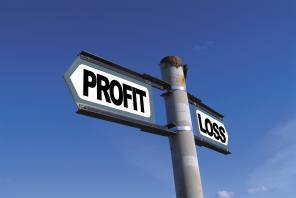
Investment gone wrong? When to call the lawyers

As all investors know, some investments fail.
Investment documentation is usually replete with disclaimers and risk warnings, varying from the basic "value may go up or down" and "capital is at risk" to the esoteric.
Although legitimate investments may fail on a no-fault basis, in certain scenarios investors may be able to recover their losses from the players involved.
Investors may look to one or more of their own broker or financial adviser, the investment company, issuer, the professional advisers (such as accountants and auditors), fund or asset managers, the underwriter, sponsor or arranging banks involved in the instrument and/or third-party "bad actors" who have played a part in the investment's failure.
The starting point for any investor considering potential claims in relation to a failed investment is to identify what went wrong. Some typical categories that lend themselves to claims to recover losses include:
- "The investment is inconsistent with the information that was given to me prior to my investment." This might include misinformation or failure to disclose relevant information or risks about the investment opportunity or about the instrument itself (such as the way a structured derivative has been priced). The heightened interest in environmental, social or governance credentials for investments brings with it an increased frequency of "greenwashing" allegations in respect of those professed credentials.
- "The terms of the investment documentation have been breached." This might include a realisation that the waterfall distribution in the investment documentation has not been followed or that margin call provisions have been breached.
- "The investment was unsuitable for me or breached the investment mandate." For retail investors this will include where an investment is unsuitable for the investor's risk appetite. At a fund or portfolio investment level, this could include investing in companies or instruments that do not match the mandated investment criteria (such as industry-specific exclusions or ESG requirements).
- "Broker/adviser misconduct and asset/fund mismanagement." This can include the taking of secret commissions, unauthorised trades, breaching concentration-risk thresholds or negligence in the selection and due diligence conducted in relation to the investment.
- "This investment was a scam or a fraud." Frauds in investments can take many forms such as Ponzi schemes, general misapplication of funds invested and dishonest misrepresentations about the investment opportunity.
- "A third-party/state/regulator intervention has damaged this investment." A recent example in this category is the intervention of the Swiss regulator Finma in relation to Credit Suisse and the AT1 Bonds.
- "This simply doesn't add up… and I can't see why…" Perhaps the most unsettling scenario is where an investor cannot identify the root cause of an investment's bad performance, but believes that something is awry. Compelling disclosure of information in these cases can often unlock the story.
As to when an investor faced with these scenarios should call a lawyer, the short answer is the sooner the better, and ideally with a full suite of documentation to enable the lawyers to assess the possible claims most efficiently.
In addition to claims for damages or unwinding the investment, they will also be able to advise the investor as to how best to reserve their rights while the investment is continuing, the prospect of compelling disclosure of documentation from the other parties and, in extreme circumstances, possible injunctions to freeze assets if appropriate.
Hiring lawyers will not help an investor who is simply trying to trade on yesterday's prices and get out of a bad deal – but where there is fault, seeking legal advice swiftly and with full information will improve the investor's prospects in the long run.
Even if the answer from the lawyers is that there is no realistic claim, or it is a claim that is uncommercial to pursue, it is always better to determine that at the outset.
Charlotte Henschen is partner at RPC





